- Apply
- Visit
- Request Info
- Give



Published on May 06, 2021
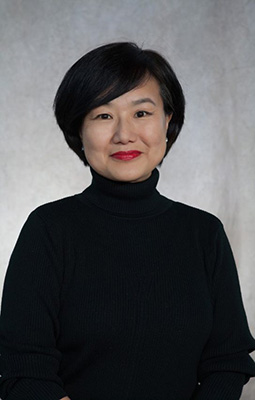
When Okon Hwang, professor of music and chair of Eastern Connecticut State University’s Music Department, goes for a walk in her neighborhood, she wears a mask to follow COVID-19 safety protocols. But Hwang’s mask serves a dual purpose. An ethnomusicologist and internationally renowned musician in piano performance and literature, Hwang also wears the mask out of fear that someone may recognize her as Asian and physically attack her.
Hwang’s testimony was part of a “Stop Asian Hate” panel discussion at Eastern on May 3, as part of the University’s observance of Asian American and Pacific Islander Heritage Month. Other panelists included Connecticut Attorney General William Tong, Boston-based artist Ameya Okamoto and graduate intern Roland Galvez. Tara Nyguen ’21, president of the Asian Cultural Society student club, moderated the panel.
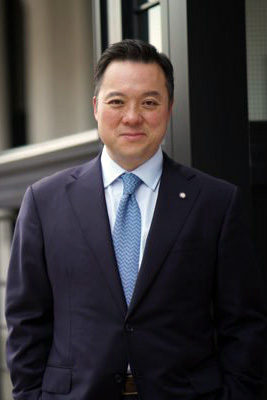
Hwang, a native of South Korea, has good reason to cover her face. The Center for the Study of Hate and Extremism at California State University, San Bernardino, found that hate crimes against Asian Americans, comparing data from the first quarter of 2021 to the same time period in 2020 across 15 major cities, surged by 169 percent. On March 16 in Atlanta, eight people, including six women of Asian descent, were killed in shootings at massage parlors.
Hwang said she had to overcome her cultural transition to America. “I know the ‘Twinkie’ insult — ‘yellow on the outside, white on the inside.’ I was in a subjugated position. I inherited a value system imposed on us. It took courage from the bottom of my gut to face the reality of being me. Courage is the key word in becoming an advocate of yourself, your culture. As long as you are silent, you will never be heard.”
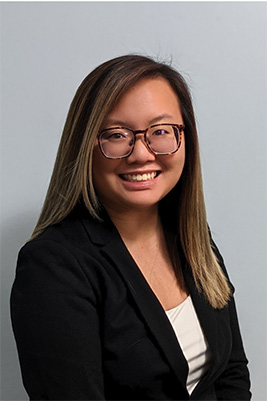
Tong said his journey has been long and difficult. In 2006, he was the first Chinese American to be elected as a state attorney general. He said part of being Asian American is to be invisible. He said Asian Americans are finally being seen, but under very difficult circumstances. “I remember when I first ran for the office, I was told I should take my wife’s last name — Elizabeth Hotchkiss is white — and run as ‘William Hotchkiss.’ I was told to hide the fact that you are Chinese. That moment always stuck with me. It awakened in me how important it is to run toward who I am, rather than away from who I am. A lot of Asians in this country wrestle with identity. We are as American as barbeque. It is important not to buy into this assimilation myth. There is nothing to assimilate to. You cannot deny who you are.”
Nguyen concurred, saying “Asians have been trying to assimilate instead of living who you are.”
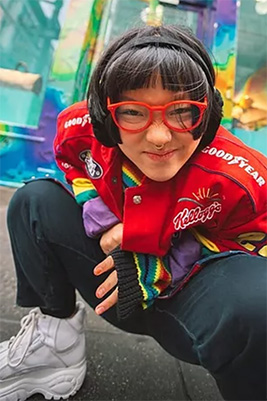
Okamoto, who uses art to create connections with others and the Asian community, said life in America is complex. “We have to pull from the truth and strength of our ancestors. Too often, our self-worth is dependent on how we are perceived by others. We are too busy thinking about everyone else, but no one is thinking about us! The first thing you think about when you wake up in the morning is trying to figure out how you can shape the perception of the way others see you. ‘I’m Asian.’ You are Asian and you can’t change that. We must rise in visibility.”
Galvez, whose family is from the Philippines, is pursuing a career in criminal justice and said he intends to work to ensure social progress. “Asians are more willing to speak up now than before because the rise in anti-Asian attacks have created a new activism.”
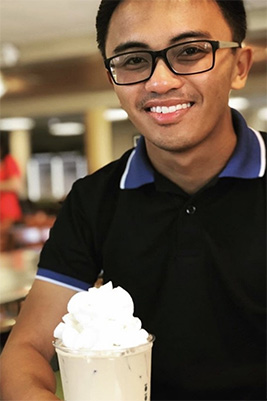
In conclusion, Hwang said, “I am tired of pretending that I am okay when I am not. One needs strength to survive this storm. We can’t just be quiet and not want to create a problem. We must take, not just a step, but take a leap and not hide behind the cloth of silence. Speak up about injustice!”
Okamoto encouraged Asians to prioritize their own mental health and decide what part they want to play to survive and thrive. “How much can you bear, growing up not looking like the people around you? People will deliberately misunderstand you. An admissions officer gives you a personality score based on his or her stereotypes, and you wonder why you are not admitted. It’s not your fault that you are being misunderstood.”
Tong said, “My parents were strong. They didn’t back down from anything or anyone. They were not submissive or quiet. They never told me not to rock the boat. So I say to you, don’t let the haters ruin your day. Remember who you are and where you came from. That will get you through most of this. What is missed in all this is that we are a nation of immigrants. We all have experiences that are common. We all must explore it together.”
The panel was sponsored by Eastern’s Arthur L. Johnson Unity Wing.
Written by Dwight Bachman